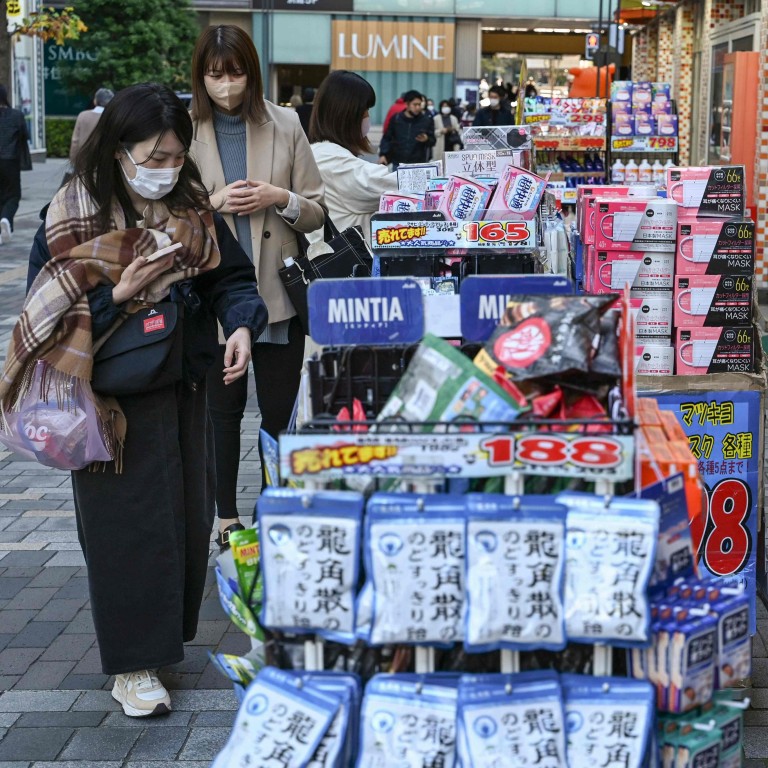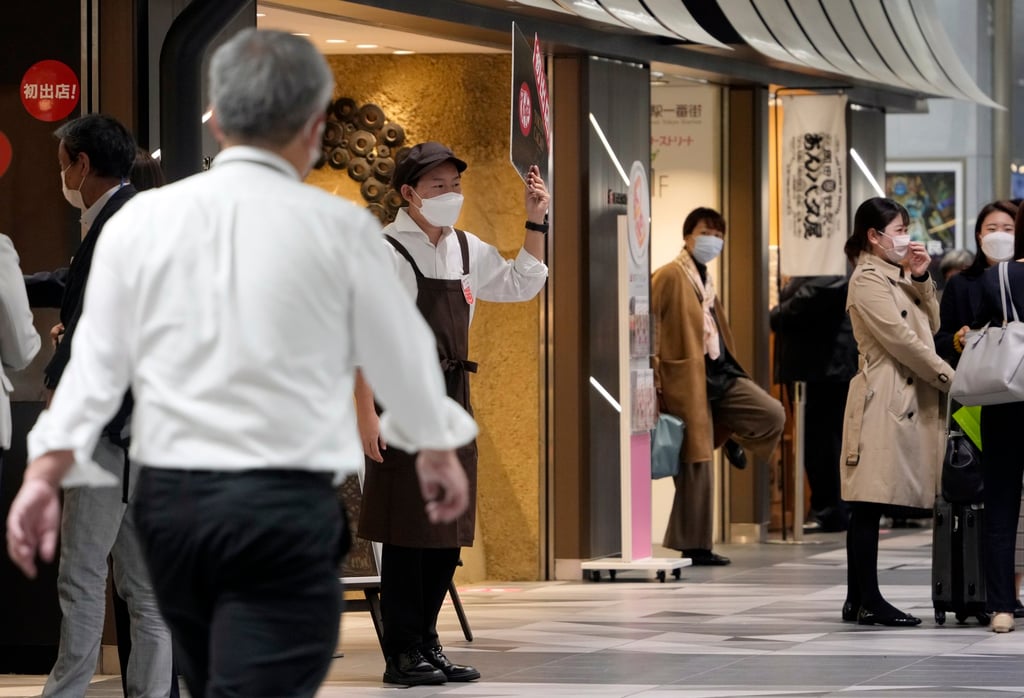
‘So expensive’: Japan consumers, businesses feel the pinch as higher inflation bites
- Residents are cutting down expenses on food, travel and other items to cope with rising prices, survey shows
- Core consumer inflation hit 40-year high in October, accelerated by high energy prices and a weak yen, but Bank of Japan says it is unlikely to last
Japanese consumers are dramatically cutting back on spending as the cost of goods and services continues to rise, while businesses are increasingly concerned the nation’s penny-pinching may be the final nail in the coffin after three years of pandemic hardship.
A study conducted in October by Sumitomo Life Insurance Co. confirmed that more than 87 per cent of the 5,005 people interviewed said rising prices had affected family finances to some degree. As a consequence, nearly 73 per cent said they were actively looking to cut expenses.
The cost of food was most keenly felt, followed by utility bills and the cost of vehicle fuel, the study showed. Just 12 per cent of people said they had not seen an increase in their everyday costs.
In response to the new pressure on their purses, 42.6 per cent of people said they were spending less on food, and more than 36 per cent were cutting back on travel and leisure pursuits. More than 21 per cent of men said they were spending less on going out, while one-third of women were buying fewer clothes and more than 28 per cent said outlays on cosmetics and beauty products were down.
Families with children are also feeling the pinch, with 16 per cent of respondents saying they have had to withdraw their children from after-school classes and more than 22 per cent having reduced the frequency of extra lessons.
“Things are already quite difficult and it seems that every time I go to the supermarket, the cost of several things has gone up again,” said Yae Oono, who lives in Kawasaki and works part-time to contribute to the family budget. “I have particularly noticed that imported fruit, like bananas or pineapple, are more expensive.”

Inflation was up for a 14th consecutive month, the BOJ said, and October’s figure surpassed the 3 per cent increase in the previous month. According to analysis firm Teikoku Databank Ltd, the price of some 6,700 everyday items rose in October, a record for any single month since records have been compiled.
Food prices were up by an average of 5.9 per cent, while the cost of electricity was up 20.9 per cent and gas climbed 26.8 per cent.
BOJ Governor Haruhiko Kuroda said the bank remained committed to its ultra-low rate policy, which was required to support the weak economy and encourage wage increases. He added the bank was firm in its belief that recent inflation figures had been worsened by higher energy prices and the weak yen, but that rising inflation would not last long.

The government has recently extended a subsidy scheme for fuel and is calling on companies to raise wages but, in the short term, ordinary people are struggling.
“I thought I’d finally have some spending money after four years of university and starting work in April, but it has not really worked out that way,” said Issei Izawa, who joined a luxury hotel brand in Tokyo earlier this year.
“There are bills and I’m still paying off student loans. I did expect I would be able to meet up with friends once or twice a week, at least, but that is proving difficult.”
Andy Lunt, owner of the hugely popular Shin-Hinomoto izakaya in Tokyo’s Yurakucho district, noticed a dip in domestic customers.
“After a couple of terrible years, we are getting by again and things look busy, but that is mainly being driven by the expat community in Tokyo and people visiting Japan on business,” he said. “Traffic with my local Japanese customers is down by 50 per cent, I would guess.
“People are nervous about coming out again and companies are telling their staff that they don’t want them holding bonenkai end-of-year parties this year because it’s too risky,” he said. “I’ve already had a couple of parties cancel for the end of the year and I fear more might do the same.
“Everything has become so expensive in such a short time,” he added. “We’ve had to raise prices by 7 per cent across the board. People … know we had no choice if we wanted to survive, but I do not like having to do that to loyal customers.”

